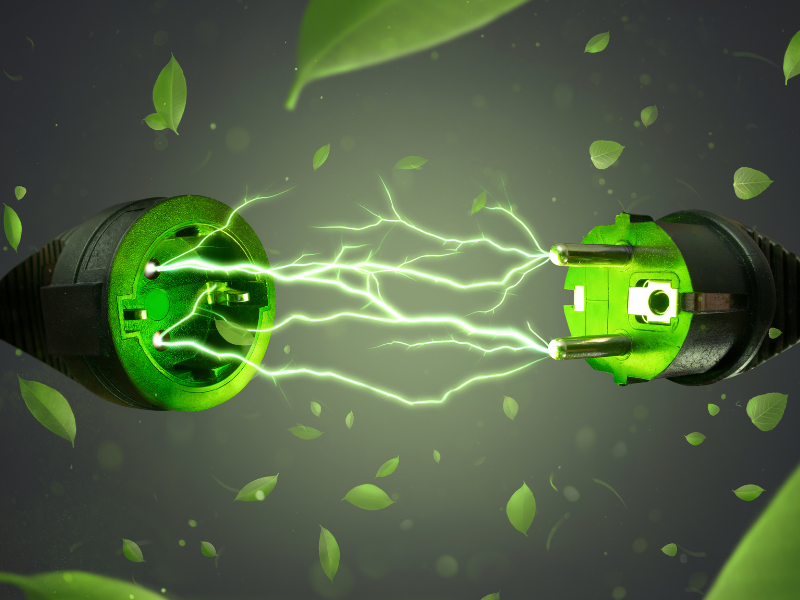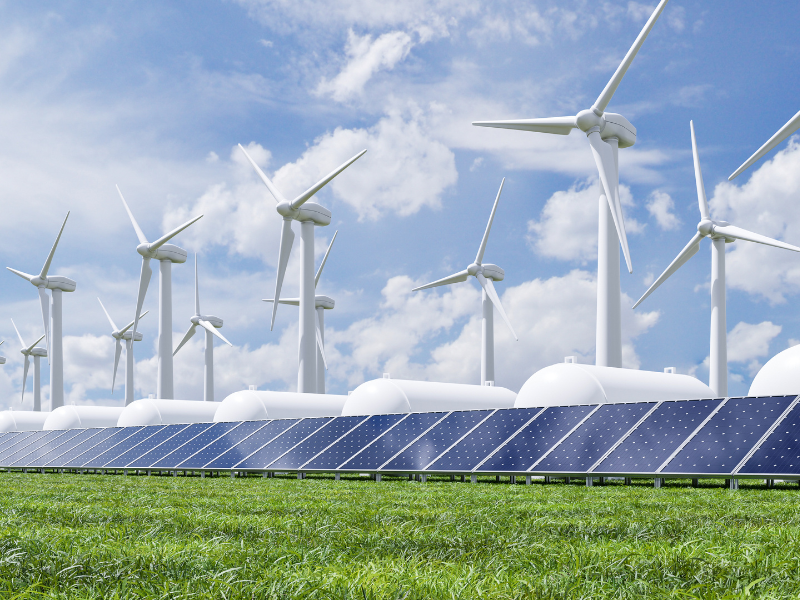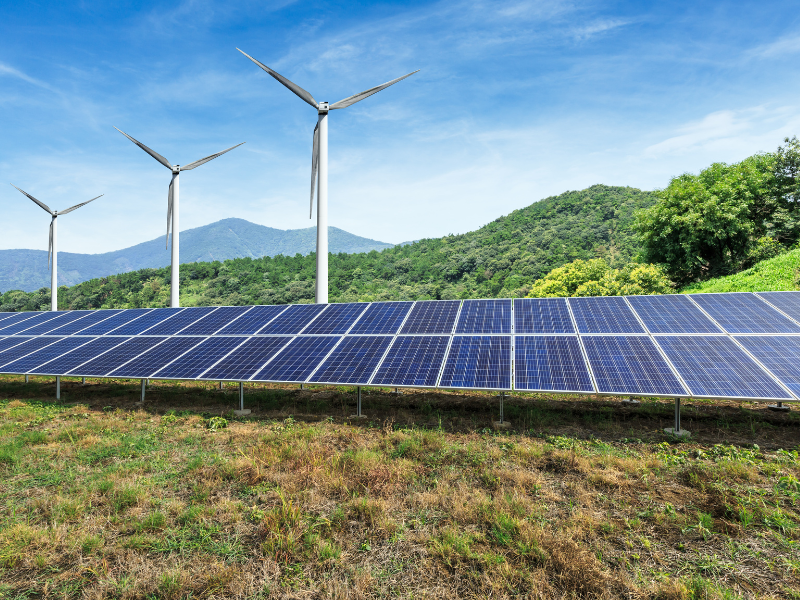Introduction
Welcome to our comprehensive guide on environmentally conscious power companies. In this article, we will explore the concept of environmentally conscious power companies, their importance, and the benefits they offer. We will delve into the sustainable energy sources used by these companies, as well as the role of technology in their operations. Additionally, we will discuss how environmentally conscious power companies reduce carbon footprint and the challenges they face. So, let’s dive in and learn more about these power companies of the future!
What is an Environmentally Conscious Power Company?
An environmentally conscious power company is an organization that prioritizes the use of sustainable and renewable energy sources to generate electricity. These companies are committed to reducing greenhouse gas emissions, minimizing their impact on the environment, and promoting a cleaner and greener future. They actively invest in renewable energy projects and technologies to provide clean energy alternatives to their customers.
The Importance of Environmentally Conscious Power Companies

Environmentally conscious power companies play a crucial role in addressing the global challenges of climate change and environmental degradation. By shifting from fossil fuel-based energy sources to renewable energy, these companies contribute to reducing greenhouse gas emissions and mitigating the impacts of climate change. They prioritize sustainability and advocate for a transition to a low-carbon economy.
Through their efforts, environmentally conscious power companies raise awareness about the importance of sustainable energy sources and inspire individuals and businesses to make environmentally friendly choices. They promote a cleaner and healthier environment for present and future generations. By supporting these companies, consumers can actively participate in the fight against climate change.
Benefits of Choosing Environmentally Conscious Power Companies

Choosing environmentally conscious power companies has several benefits for individuals, businesses, and the environment. Let’s explore some of these benefits:
Reduced Carbon Footprint
By choosing an environmentally conscious power company, individuals and businesses can significantly reduce their carbon footprint. These companies primarily rely on renewable energy sources such as solar, wind, and hydroelectric power, which produce little to no greenhouse gas emissions. By switching to clean energy, customers can actively contribute to combating climate change.
Lower Energy Costs
Contrary to popular belief, choosing environmentally conscious power companies does not necessarily mean higher energy costs. In fact, many renewable energy sources have become more cost-effective in recent years. Additionally, some environmentally conscious power companies offer competitive pricing and discounts to encourage the adoption of clean energy. By switching to these companies, customers can save money while supporting a greener future.
Energy Independence
Environmentally conscious power companies promote energy independence by reducing reliance on fossil fuels and imported energy sources. By harnessing local renewable energy resources, these companies help diversify the energy mix and reduce vulnerability to price fluctuations. This enhances energy resilience and contributes to the economic well-being of communities.
Green Credentials
Choosing an environmentally conscious power company allows individuals and businesses to showcase their commitment to sustainability. By supporting these companies, customers can establish themselves as environmentally responsible entities and align their values with their energy consumption choices. This can enhance the reputation and credibility of businesses and attract environmentally conscious customers.
Job Creation and Economic Growth
The renewable energy sector, driven by environmentally conscious power companies, has the potential to drive job creation and economic growth. The development, installation, and maintenance of renewable energy projects require skilled workers, providing employment opportunities in local communities. Furthermore, the growth of the renewable energy industry can attract investments and stimulate economic development.
Sustainable Energy Sources Used by Environmentally Conscious Power Companies

Environmentally conscious power companies utilize a variety of sustainable energy sources to generate electricity. Here are some of the most commonly used sources:
Solar Energy
Solar energy is harnessed by capturing sunlight and converting it into electricity using photovoltaic (PV) cells or concentrated solar power systems. Solar panels are installed on rooftops or in solar farms to take advantage of the limitless energy provided by the sun. Solar energy is abundant, renewable, and emits zero greenhouse gas emissions during the generation process.
Wind Energy
Wind energy is generated by harnessing the power of wind through wind turbines. As the wind blows, it spins the turbine blades, generating electricity. Environmentally conscious power companies often establish wind farms in areas with consistent wind patterns to maximize energy production. Wind energy is clean, abundant, and plays a significant role in reducing reliance on fossil fuels.
Hydroelectric Power
Hydroelectric power utilizes the energy of flowing or falling water to generate electricity. Environmentally conscious power companies build dams or divert water through turbines to spin generators. Hydroelectric power is a reliable and renewable energy source that produces minimal greenhouse gas emissions. However, its implementation can have environmental impacts on aquatic ecosystems and local communities.
Geothermal Energy
Geothermal energy harnesses the natural heat of the Earth’s interior to generate electricity. Environmentally conscious power companies tap into geothermal reservoirs by drilling wells and using steam or hot water to spin turbines. Geothermal energy is a sustainable and reliable source that operates continuously, making it suitable for baseload power generation.
Biomass Energy
Biomass energy is obtained from organic matter such as agricultural crops, forestry residues, and dedicated energy crops. Environmentally conscious power companies convert biomass into biofuels or burn it directly to produce heat, steam, or electricity. Biomass energy is renewable and carbon-neutral when sustainably managed, making it an attractive option for reducing greenhouse gas emissions.
Renewable Energy: The Key to a Sustainable Future

Renewable energy is the cornerstone of environmentally conscious power companies and the key to a sustainable future. Unlike fossil fuels, renewable energy sources are continuously replenished and have minimal environmental impacts. By transitioning to renewable energy, we can reduce carbon emissions, mitigate climate change, and ensure a cleaner and healthier planet for future generations.
Renewable energy technologies have advanced significantly in recent years, becoming more efficient and cost-effective. Solar panels are more affordable and accessible, wind turbines are larger and more efficient, and energy storage technologies have improved. This progress has made renewable energy a viable alternative to traditional fossil fuel-based power generation.
Governments, businesses, and individuals all have a role to play in transitioning to a renewable energy future. Supportive policies and incentives can spur the development and deployment of renewable energy projects. Businesses can invest in clean energy technologies and adopt sustainable practices. Individuals can choose environmentally conscious power companies and reduce their energy consumption through efficiency measures.
The Role of Technology in Environmentally Conscious Power Companies
Technology plays a vital role in the operations of environmentally conscious power companies. Advancements in technology have enabled more efficient and cost-effective renewable energy generation, energy storage, and grid integration. Here are some key technological advancements in the sector:
Advanced Solar Panel Technology
Solar panel technology has seen significant advancements, making solar energy more accessible and efficient. Thin-film solar cells, bifacial panels, and solar shingles are some examples of innovative solar panel technologies. These technologies improve the efficiency and aesthetics of solar installations, making them more visually appealing and appealing to a broader range of consumers.
Smart Grids and Grid Integration
Smart grids allow for the integration of diverse renewable energy sources into the existing power grid. These grids use advanced sensors, meters, and communication technologies to monitor, control, and optimize the flow of electricity. Smart grids facilitate the seamless integration of intermittent renewable energy sources, ensuring grid stability and reliability.
Energy Storage Solutions
Energy storage technologies are essential for the widespread adoption of renewable energy. They allow excess energy generated during peak production periods to be stored and used when demand exceeds supply. Batteries, including lithium-ion and flow batteries, are commonly used for energy storage. Additionally, pumped hydro storage and compressed air energy storage offer large-scale storage solutions.
Internet of Things (IoT) in Energy Management
The Internet of Things (IoT) is transforming the energy management landscape. IoT devices can collect and transmit data in real-time, allowing for more efficient monitoring and control of energy usage. Smart thermostats, energy management systems, and demand response programs enable consumers to optimize their energy consumption and reduce waste.
How Environmentally Conscious Power Companies Reduce Carbon Footprint
Environmentally conscious power companies actively take measures to reduce their carbon footprint. Here are some strategies they employ:
1. Carbon Offsetting
Some environmentally conscious power companies invest in carbon offset projects to neutralize their greenhouse gas emissions. These projects often involve activities such as reforestation, renewable energy installations, or energy efficiency projects. Carbon offsetting allows companies to balance out their emissions by supporting projects that reduce or remove an equivalent amount of greenhouse gases from the atmosphere.
2. Fuel Switching
Environmentally conscious power companies transition from fossil fuel-based generation to renewable energy sources. By phasing out the use of coal, oil, or natural gas and replacing them with cleaner alternatives, these companies significantly reduce their carbon emissions. This switch contributes to the overall reduction of greenhouse gas emissions and the promotion of a cleaner energy mix.
3. Energy Efficiency Measures
Environmentally conscious power companies prioritize energy efficiency in their operations. They implement measures such as optimizing equipment performance, investing in energy-efficient technologies, and promoting energy-saving practices among employees. By reducing energy consumption, these companies minimize their environmental impact and increase the overall efficiency of the energy system.
4. Demand Response Programs
Demand response programs allow environmentally conscious power companies to manage electricity demand during peak periods. By incentivizing customers to reduce or shift their energy consumption to non-peak hours, these programs help balance electricity supply and demand. This reduces the strain on the power grid, avoids the need for additional fossil fuel-based generation, and decreases carbon emissions.
Innovations in Energy Storage by Environmentally Conscious Power Companies
Energy storage is a critical component of the transition to a clean energy future. It allows environmentally conscious power companies to store excess energy from renewable sources and utilize it when needed. Here are some innovative energy storage solutions employed by these companies:
Lithium-Ion Batteries
Lithium-ion batteries are widely used for small-scale energy storage applications. They are compact, lightweight, and have a high energy density, making them suitable for residential and commercial use. Lithium-ion batteries can store excess solar or wind energy and provide power during periods of low generation or high demand.
Flow Batteries
Flow batteries offer scalable energy storage solutions for large-scale applications. They utilize two electrolyte solutions that flow through a stack of electrodes, storing and releasing energy. Flow batteries can store more energy compared to lithium-ion batteries and have a longer lifespan. They are commonly used in grid-scale energy storage projects.
Pumped Hydro Storage
Pumped hydro storage is a mature and proven technology for large-scale energy storage. It involves pumping water from a lower reservoir to an upper reservoir when excess energy is available. During periods of high demand, the water is released back to the lower reservoir through turbines to generate electricity. Pumped hydro storage offers high efficiency and long-term energy storage capabilities.
Compressed Air Energy Storage (CAES)
Compressed Air Energy Storage (CAES) systems store excess energy by compressing air and storing it in underground caverns. When energy is needed, the compressed air is released, expanded, and used to generate electricity through turbines. CAES offers large-scale storage capacity and can provide continuous power for extended periods.
Government Policies and Incentives for Environmentally Conscious Power Companies
Government policies and incentives play a significant role in promoting the growth of environmentally conscious power companies. Here are some key policies and incentives implemented by governments worldwide:
Renewable Portfolio Standards (RPS)
Renewable Portfolio Standards require utilities to obtain a certain percentage of their electricity from renewable sources. These standards set targets for the share of renewable energy in the overall energy mix and encourage the development of renewable energy projects. Companies that exceed the requirements can sell excess renewable energy credits.
Feed-in Tariffs (FiTs)
Feed-in Tariffs guarantee a fixed payment for electricity generated from renewable sources. Power producers are paid a premium rate for each unit of renewable energy they generate, providing an incentive for investment in renewable energy projects. Feed-in Tariffs help overcome the initial high costs associated with renewable energy installations and promote project development.
Investment Tax Credits (ITC)
Investment Tax Credits provide tax benefits to individuals or businesses that invest in renewable energy projects. These tax credits offset a portion of the investment costs, reducing the financial burden of renewable energy initiatives. Investment Tax Credits help attract private investments and accelerate the adoption of renewable energy technologies.
Carbon Pricing
Carbon pricing mechanisms, such as carbon taxes or cap-and-trade systems, put a price on greenhouse gas emissions. By making it costly to emit carbon dioxide, these mechanisms incentivize companies to reduce their emissions and invest in cleaner energy alternatives. Carbon pricing provides an economic incentive for environmentally conscious power companies and other industries to decarbonize their operations.
Challenges Faced by Environmentally Conscious Power Companies
While environmentally conscious power companies have made significant progress, they still face various challenges in their operations. Here are some common challenges:
Intermittency of Renewable Energy Sources
Renewable energy sources such as solar and wind are intermittent, meaning their generation fluctuates depending on sunlight and wind availability. This intermittency poses challenges in meeting the demand for electricity reliably. Environmentally conscious power companies invest in energy storage technologies and grid integration solutions to address this challenge.
Upfront Costs and Financial Viability
Investing in renewable energy projects often requires significant upfront costs, which can be a barrier for environmentally conscious power companies. While the costs of renewable energy technologies have decreased, financing and access to capital remain challenges. Companies may need to explore partnerships, government incentives, and innovative financing models to overcome financial barriers.
Grid Integration and Infrastructure Upgrade
The integration of renewable energy into the existing power grid can pose technical challenges. The grid infrastructure may require upgrades to accommodate the variable nature of renewable energy sources. Environmentally conscious power companies work closely with grid operators and invest in grid modernization to ensure seamless integration and reliable power supply.
Regulatory and Policy Uncertainty
Uncertain regulatory frameworks and policy changes can create challenges for environmentally conscious power companies. Stable and supportive policies are essential to attract investments and provide a favorable business environment. Companies need clear regulatory guidelines and long-term policy commitments to plan and execute renewable energy projects effectively.
FAQs
Q: How can I find environmentally conscious power companies in my area?
To find environmentally conscious power companies in your area, you can search online or consult local energy regulatory authorities. They often maintain databases or lists of companies that offer renewable energy options. Additionally, you can reach out to local environmental organizations or community groups for recommendations.
Q: Are environmentally conscious power companies more expensive?
The cost of electricity from environmentally conscious power companies can vary depending on various factors such as location, energy market dynamics, and the specific company’s pricing structure. While some companies may offer competitive rates, others may have slightly higher prices due to the costs associated with renewable energy generation. However, many environmentally conscious power companies offer pricing plans and incentives that make them cost-competitive with traditional energy providers.
Q: Can I switch to an environmentally conscious power company if I rent my property?
Yes, you can switch to an environmentally conscious power company even if you rent your property. In many cases, tenants have the option to choose their energy provider independently. Check with your landlord or property management company to understand the process and any limitations that may apply.
Q: What are the long-term benefits of supporting environmentally conscious power companies?
Supporting environmentally conscious power companies has several long-term benefits. By choosing clean energy sources, you contribute to reduced greenhouse gas emissions, which helps combat climate change. Additionally, you support the development of renewable energy infrastructure and encourage innovation in the clean energy sector. Your actions also send a message to the market and policymakers about the demand for sustainable energy options, potentially leading to further policy and industry changes.
Conclusion
Environmentally conscious power companies are at the forefront of the clean energy transition, prioritizing sustainability and offering renewable energy alternatives. By choosing these companies, individuals and businesses can significantly reduce their carbon footprint, lower energy costs, and support a cleaner and greener future. Through the use of sustainable energy sources, technological advancements, and policy support, these companies are driving the shift towards a more sustainable and resilient energy system. So, make the switch and join the movement towards a brighter and greener tomorrow!




